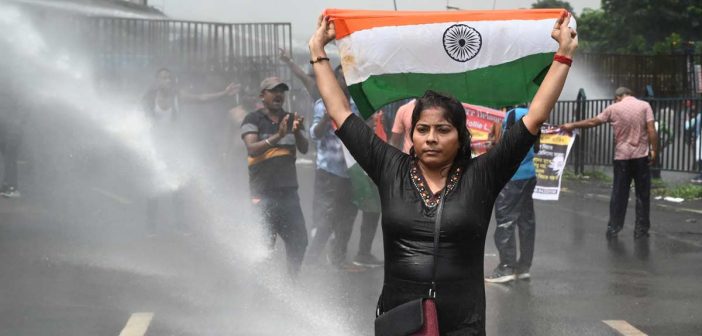The recent wave of rape cases in Kolkata, particularly the high-profile incidents such as the rape and murder of a doctor at RG Kar Medical College, has sparked outrage and led to a complex web of political, judicial, and social issues. Despite holding the public’s attention, these cases have seen little progress in terms of investigation and justice. Instead, they have devolved into what can be described as a political and judicial circus, with the victim’s families bearing the brunt of a sluggish and ineffective system.
Political Exploitation and Media Sensationalism
From the outset, these cases have been marred by political exploitation. Various political parties have used these incidents to gain political mileage, often at the expense of the victim’s dignity and the truth. The involvement of political figures in protests and statements has only added to the sensationalism, turning genuine calls for justice into mere political tools. For instance, BJP leader Suvendu Adhikari’s comments about the protection of certain groups within the police force only added to the tensions and accusations of a cover-up. This has detracted from the core issue—justice for the victims—and has transformed the cases into media spectacles rather than matters of public concern and morality.
Judicial Inaction and Delays
The judicial response to these cases has been equally disappointing. Despite the gravity of the allegations, there has been a glaring lack of urgency in the investigations. It took considerable public and media pressure before the Calcutta High Court intervened, ordering a Central Bureau of Investigation (CBI) probe into the doctor’s case. However, even with the CBI’s involvement, progress has been slow, leading to widespread frustration. The judiciary’s apparent inability to act swiftly and decisively has contributed to a perception of impunity for the perpetrators, further emboldening them and disillusioning the public.
Impact on the Victim’s Family
While politicians and the media continue their circus, the victim’s families remain the silent sufferers. These families face not only the emotional trauma of losing a loved one in such a brutal manner but also the additional burden of navigating a legal system that seems more interested in optics than justice. The prolonged investigations and the lack of concrete results add to their distress, leaving them to feel abandoned by a system that should have been their support.
Public Protests and Social Unrest
Public reaction to these cases has been intense, with protests erupting across Kolkata and other parts of West Bengal. Students and young professionals, particularly from the medical community, have been at the forefront of these protests, demanding justice and safety. However, these protests have often been met with a heavy-handed response from the authorities, including the use of tear gas and force to disperse crowds. This has led to a cycle of violence and unrest, further complicating the situation and diverting attention from the need for effective legal and judicial intervention.
Conclusion
The handling of rape cases in Kolkata has exposed deep flaws in both the political and judicial systems. While political parties continue to play blame games, and the media focuses on sensationalism, the victims and their families are left to suffer in silence. There is an urgent need for a more humane and justice-oriented approach, one that prioritizes the victims’ rights and dignity over political gains. Only then can we hope to see real progress and restore faith in the justice system.





